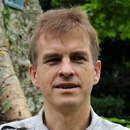Arild Angelsen is a professor of economics at the Norwegian University of Life Sciences (NMBU) and a senior associate of CIFOR. He has done extensive research and published on causes of tropical deforestation, and its interaction with poverty, tenure and government policies. Since 2007, his main focus has been on the REDD+ initiative: global architecture (in particular national reference levels), national strategies and policies, and the design and evaluation of local projects. He has edited four REDD+ books that have become standard references in the debate. Angelsen was global coordinator of the Poverty Environment Network (PEN), a CIFOR-led research programme collecting detailed information from 8,000+ households in 24 developing countries on forest uses and management. More recent work uses field experiments to study human behaviour and the impact of policy interventions for sustainable resource use. He has broad field experience from Southeast Asia and Eastern Africa, and is editor of a book on field research methods.

CIFOR-ICRAF berfokus pada tantangan-tantangan dan peluang lokal dalam memberikan solusi global untuk hutan, bentang alam, masyarakat, dan Bumi kita
Kami menyediakan bukti-bukti serta solusi untuk mentransformasikan bagaimana lahan dimanfaatkan dan makanan diproduksi: melindungi dan memperbaiki ekosistem, merespons iklim global, malnutrisi, keanekaragaman hayati dan krisis disertifikasi. Ringkasnya, kami berupaya untuk mendukung kehidupan yang lebih baik.
Tata kelola

Explore eventos futuros e passados em todo o mundo e online, sejam hospedados pelo CIFOR-ICRAF ou com a participação de nossos pesquisadores.
ACARA YANG AKAN DATANG

ÚLTIMAS NOTÍCIAS
A ciência precisa de canais de comunicação claros para cortar o ruído, para que a pesquisa tenha algum impacto. O CIFOR-ICRAF é tão apaixonado por compartilhar nosso conhecimento quanto por gerá-lo.

Découvrez les évènements passés et à venir dans le monde entier et en ligne, qu’ils soient organisés par le CIFOR-ICRAF ou auxquels participent nos chercheurs.
ACARA YANG AKAN DATANG

Jelajahi acara-acara mendatang dan yang telah lalu di lintas global dan daring, baik itu diselenggarakan oleh CIFOR-ICRAF atau dihadiri para peneliti kami.
ACARA YANG AKAN DATANG

Actualités
Pour que la recherche ait un impact, la science a besoin de canaux de communication clairs pour aller droit au but. CIFOR-ICRAF est aussi passionné par le partage de ses connaissances que par leur production.

ÚLTIMAS NOTICIAS
Para que la investigación pueda generar algún impacto, los conocimientos científicos requieren de canales de comunicación claros. En CIFOR-ICRAF, compartir nuestros conocimientos nos apasiona tanto como generarlos.

Explore eventos futuros y pasados organizados por CIFOR-ICRAF o con la participación de nuestros investigadores.
ACARA YANG AKAN DATANG

CIFOR-ICRAF menerbitkan lebih dari 750 publikasi setiap tahunnya mengenai agroforestri, hutan dan perubahan iklim, restorasi bentang alam, pemenuhan hak-hak, kebijakan hutan dan masih banyak lagi – juga tersedia dalam berbagai bahasa..
Kabar terbaru
Ilmu pengetahuan membutuhkan saluran komunikasi yang jelas untuk mencapai tujuan, jika ingin dampaknya terlihat. CIFOR-ICRAF sangat bersemangat untuk berbagi pengetahuan sembari menghasilkan pengetahuan itu sendiri.

CIFOR-ICRAF mendukung dampak ilmiah. Kami melakukan penelitian inovatif, memperkuat kapasitas mitra dan secara aktif terlibat dalam dialog dengan para pemangku kepentingan, menyajikan wawasan termutakhir terkait hutan, pohon, bentang alam, dan masyarakat untuk pengambilan keputusan global.

CIFOR-ICRAF berfokus pada tantangan-tantangan dan peluang lokal dalam memberikan solusi global untuk hutan, bentang alam, masyarakat, dan Bumi kita
Kami menyediakan bukti-bukti serta solusi untuk mentransformasikan bagaimana lahan dimanfaatkan dan makanan diproduksi: melindungi dan memperbaiki ekosistem, merespons iklim global, malnutrisi, keanekaragaman hayati dan krisis disertifikasi. Ringkasnya, kami berupaya untuk mendukung kehidupan yang lebih baik.
Tata kelola

CIFOR–ICRAF achieves science-driven impact. We conduct innovative research, strengthen partners’ capacity and actively engage in dialogue with all stakeholders, bringing the latest insights on forests, trees, landscapes and people to global decision making.

CIFOR–ICRAF publishes over 750 publications every year on agroforestry, forests and climate change, landscape restoration, rights, forest policy and much more – in multiple languages.
Explore our knowledge
Browse CIFOR–ICRAF’s published research in a wide range of formats, all of which are available for free online.

CIFOR–ICRAF addresses local challenges and opportunities while providing solutions to global problems for forests, landscapes, people and the planet.
We deliver actionable evidence and solutions to transform how land is used and how food is produced: conserving and restoring ecosystems, responding to the global climate, malnutrition, biodiversity and desertification crises. In short, improving people’s lives.
Governance
Untuk permintaan umum
Pusat Penelitian Kehutanan Internasional dan Pusat Penelitian Agroforestri Dunia (CIFOR-ICRAF) memanfaatkan sumber daya pepohonan, hutan, dan bentang alam agroforestri untuk menghadapi tantangan terberat dunia saat ini – berkurangnya keanekaragaman hayati, perubahan iklim, ketahanan pangan, kesejahteraan, dan ketidaksetaraan. CIFOR dan ICRAF merupakan bagian dari Pusat Penelitian CGIAR.
Untuk permintaan umum:
Untuk permintaan kontak media
Kontent
- Beranda
- Tentang kami
- Penelitian
- Kabar
- Acara
Penelitian
Berlangganan kabar terbaru CIFOR-ICRAF
© 2024 Pusat Penelitian Kehutanan Internasional (CIFOR) dan World Agroforestry (ICRAF) | CIFOR dan ICRAF adalah anggota Pusat Penelitian CGIAR | Peringatan privasi of CIFOR-ICRAF









